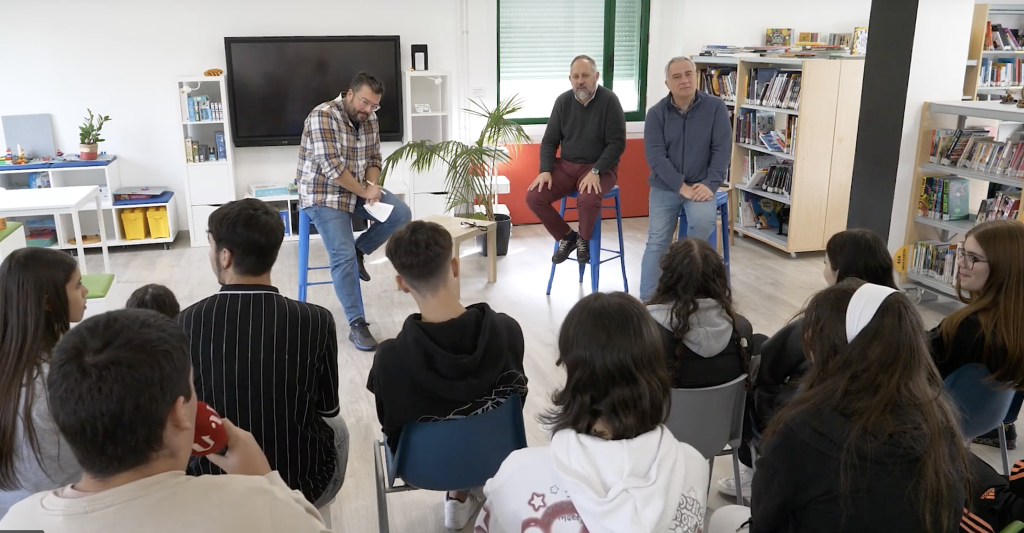Projects from the atlanTTic Research Center
Engineers Íñigo Cuíñas Gómez and Javier González Castaño appeared on “De 0 a 100”, a program by “La Voz” in collaboration with the Regional Ministry of Education, to present the virtual assistant Celia and the Digital4Rural localization system. Both were designed specifically for elderly people at the atlanTTic research center in Vigo.
According to Spain’s National Institute of Statistics (INE), there are over 700,000 people aged 65 and older in Galicia, with more than 100,000 living alone. With this potential audience in mind, the Telecommunication Technologies Research Center at the University of Vigo developed two projects that have now become a reality.
“One of the biggest challenges was identifying the actual users of these new applications. We started there to ensure usability wouldn’t be an issue,” explains Javier González Castaño, a researcher on the team that created Celia, an AI-powered conversational assistant. “The main difference between Celia and Alexa or Google Assistant is that, beyond simply executing commands, Celia understands what we say, asks follow-up questions, and creates a personalized experience for each user.”
This unique capability allows Celia, which is primarily intended for elderly users, to detect potential medical or neurodegenerative issues through a series of tests. The assistant is available for download on Android and iOS app stores, as well as on the website celiatecuida.com.
Meanwhile, Íñigo Cuíñas presented Digital4Rural, a localization system designed for rural areas. “By using location trackers, we can always know where users are, preventing elderly individuals from getting lost,” Cuíñas explains.
Most importantly, the system can function even in areas without mobile network coverage. Even if a network is available but fails, elderly users can still be located. “It is already successfully operating in three parishes in the province of Ourense, giving seniors greater independence while providing peace of mind to their families,” Cuíñas notes regarding the positive feedback the project has received.
Residents in these rural communities can view the trackers’ locations on a tablet or mobile phone (if they choose to activate them), fostering a sense of community where neighbors look out for one another.
Source: La Voz de Galicia

